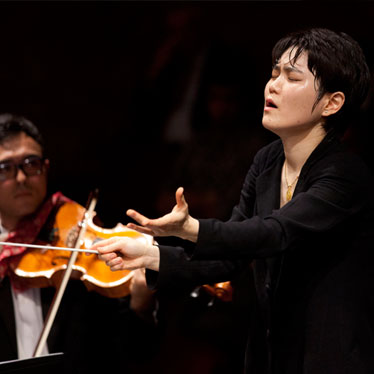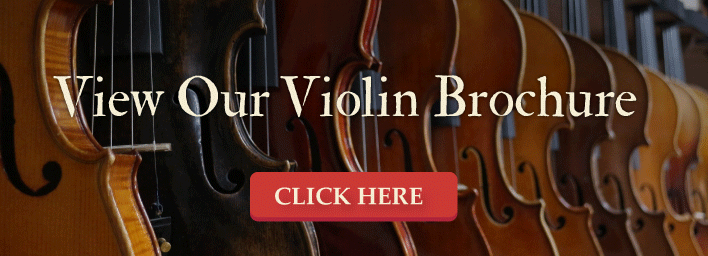Artist Profile: Cellist & Conductor Han-Na Chang

Han-Na Chang won her first cello competition, the Fifth Rostropovich International Cello Competition of 1994, when she was just 11 years old. She’d only taken up the cello a scant five years earlier. Her first instrument was the piano, which she began learning at the age of three. This was just the beginning of a twisting, turning career as both a cellist and a conductor.
Her early years were all about the cello
Born in South Korea in 1982, Chang and her family immigrated to the United States in 1993. She was already showing great promise as a musician by then and attending the pre-college school of Julliard. The same year, she participated in a masterclass held by Mischa Maisky, under whom she eventually studied privately. She would go on to study privately with Mstislav Rostropovich.
For her first album, released in 1996 when she was 14 years old, she performed with the London Symphony Orchestra, conducted by Rostropovich. Overall, she released seven albums as a cellist between 1996 and 2008, for which she’s won numerous awards.
As a cellist, Chang has performed with the La Scala Orchestra of Milan, the Boston Symphony, the National Symphony Orchestra in Washington, D.C., the NHK Symphony Orchestra in Tokyo and the Berliner Philharmoniker, among many others.
Transitioning to conductor
By 2007, Chang was shifting her focus to becoming a conductor. She explained her motivation in moving to conducting in an interview with Strings Magazine,
“I began conducting because I very much wanted to. I am drawn to the great symphonic and operatic literature, and also by the music-making and collaboration that exists between the conductor and the orchestra. I find conducting rewarding, challenging, lots of fun, and inspiring. … As a cellist, I found myself repertoire-hungry, so now, always having one too many scores to learn is a real luxury and joy.”
She made her professional debut as a conductor in 2007 in South Korea. She had been studying under American conductor James DePreist. She was particularly busy with conducting duties starting in 2012, when she conducted the Philharmonia Orchestra in London and the Royal Liverpool Philharmonic. She also guest-conducted the Qatar Philharmonic Orchestra in 2012, and was named its music director. She conducted them as part of the BBC Proms as well. (She’d performed years earlier at the Proms as a cellist.)
The following year, Chang became principal guest conductor of the Trondheim Symphony Orchestra. She has since been named its chief conductor, as of its 2017-2018 season. This appointment makes Chang the first woman to be named as chief conductor for the orchestra. You can hear what she has to say about it here.
Thus, her career as a conductor is taking the same trajectory for success as her career as a cellist. One reviewer described her performance conducting the St. Louis Symphony Orchestra this way:
“Chang, conducting without a score, showed an impressive command of the material from the opening phrases to the dynamic finale, with a thrilling reading. Her tempos were on the zippy side, but she kept firm and inspired control of the orchestra, and of the music’s direction, throughout the symphony.”
Beyond performing
Chang founded the Absolute Classic Festival in 2009, which provides roughly 100 young musicians an opportunity to work with her and other professionals as they come together as an orchestra. Her own former cello tutor, Mischa Maisky, has been one of the guest musicians who’s participated in one of the Absolute Classic Festivals.
The festival is based in her home province in South Korea and meets over the course of a month to prepare for their festival performance. Chang is particularly adamant about the festival’s audition process, which isn’t connected to any particular teachers or schools.
In addition to studying music at Julliard, Chang also studied philosophy at Harvard. She also serves as the Roving Goodwill Ambassador for the Korean Red Cross.
Top photo of Han-na Chang by Luciano Romano.


